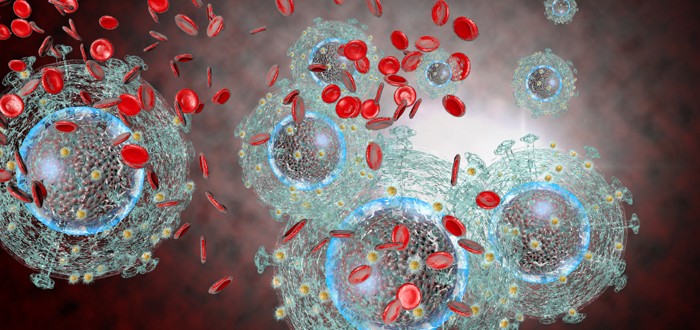The effort to kill mesothelioma by infecting tumors with live viruses received a boost recently when the U.S. Food and Drug Administration (FDA) approved an oncolytic drug for treatment of skin cancer.
The skin cancer drug is useless against mesothelioma. But FDA clearance of this drug is nevertheless important for mesothelioma research.
It proves that knocking down cancer by infecting it with a virus is no longer just theory, but is clinical reality.
Mesothelioma researchers have been investigating the use of viruses against the asbestos-caused cancer. Results have been encouraging. What they haven’t been is conclusive.
The fact that the FDA has approved the skin cancer drug means that — at least in this corner of the world of oncolytics — cancer-killing virus therapy works.
That should give mesothelioma researchers working on virus-based therapies of their own the encouragement necessary to keep going. Because success could be just around the corner.
Oncolytics Is ‘Cancer Bursting’
Wired – an online publication for tech geeks — recently ran a story about the progress being made in the field of oncolytics.
Oncolytics is a fancy word for “cancer bursting.” And bursting is exactly what these viruses do to the cancer cells they infect — they burst them into tiny pieces, according to Wired.
Once the cells burst, the body’s immune system then sends in its own troops to devour the pieces and pick off any cells that escaped the virus.
The newly FDA-approved skin cancer drug is called Imlygic. The maker is Amgen, a large biotechnology company.
Even though the FDA has approved Imlygic, there are still a few questions about its mechanisms of action that Amgen scientists and other researchers can’t quite answer.
One of these questions is whether the immune system attack that follows administration of the virus is aimed at just the infected cancer cells or also at uninfected ones. Rutgers Cancer Institute of New Jersey oncologist Howard Kaufman, M.D. intimated to Wired that he wished he knew the answer.
Kaufman worked on the Imlygic clinical trials. The one thing he and his colleagues know for sure about oncolytics as a result of those tests is that the virus kills some of the cancer cells directly.
Beyond that, they have only sketchy indications that the immune system indiscriminately attacks cancer cells, infected or not.
If that is in fact so, it would be very good news. The reason it would be good news is it means that the aroused immune system is prepared to conduct war against all comers.
Imlygic Virus Causes Cold Sores
Imlygic is the same virus that causes cold sores. However, it was reengineered in Amgen’s labs to be harmless to healthy cells. As a result, it doesn’t cause patients to break out everywhere with cold sores.
According to Wired, a big challenge in reengineering the virus was to make sure that when it attacked cancer cells it would be able to accomplish two tasks.
First, it would cause the cancer cells to burst in a way guaranteed to attract the attention of the immune system.
Secondly, it would express a protein to cause the immune system to respond like Popeye against Bluto after eating the can of spinach.
Wired noted in its article that there are more virus-based cancer therapies working their way through the FDA’s approval pipeline.
By Wired’s count, there are at least a dozen clinical trials of oncolytic drugs already underway to treat other types of cancer. The publication didn’t list them, but mesothelioma is among the targets.


